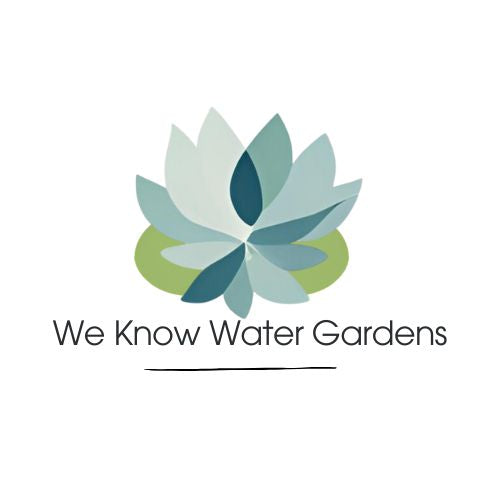Preventing Your Pond from Freezing Over: A Step-by-Step Guide
on May 12, 2023

In some regions of Australia, winter weather can be tough on your pond, especially if it freezes over completely.
This can harm the fish and plants living in the pond, and even damage the pond itself.
Fortunately, there are some simple steps you can take to prevent your pond from icing over this winter season.
Install a Pond Heater.
One of the most effective ways to prevent your pond from freezing over is to install a pond heater. These devices work by keeping a small area of the pond's surface ice-free, allowing gases to escape and oxygen to enter. There are several types of pond heaters available, including floating and submersible models. Be sure to choose a heater that is appropriate for the size of your pond and the climate in your area.
Use a Fountain to keep the Water Moving
Another way to prevent your pond from freezing over is to use a fountain. The movement of the water created by the fountain can help prevent ice from forming on the surface of the pond.
Additionally, the fountain can help circulate oxygen throughout the pond, which is important for the health of any fish or plants living in the pond.
The Pond One Pondmaster 1800 is a flexible device that can be utilised both indoors and outdoors, and it is especially suitable for the following applications:
- Fountains and statues
- Small ornaments and wall fountains
- Small ponds with a capacity of fewer than 750 liters
- Hydroponic systems
- Irrigation systems
Moreover, the Pondmaster 1800 is equipped with a variety of practical features, such as three fountain head sets, a pre-filter sponge, adjustable flow control, and fountain head extensions, which makes it an efficient and user-friendly choice for a range of water-related tasks.
Be sure to choose a fountain that is appropriate for the size of your pond and the climate in your area.
Add a Waterfall or Aerator.
Another effective way to prevent your pond from freezing over is to add a waterfall or aerator.
These devices create movement in the water, which helps prevent ice from forming on the surface of the pond. Additionally, they can help circulate oxygen throughout the pond, which is important for the health of any fish or plants living in the pond.
The 02 Plus Air Blower is exclusively designed for outdoor use and is well-suited to withstand the harsh Australian environment. This unit is particularly useful for boosting oxygen levels in ponds where fish health can be negatively impacted by high stock densities or water temperatures.
Be sure to choose a waterfall or aerator that is appropriate for the size of your pond and the climate in your area.
Will my Fish Survive in the Pond During Winter?
Fish are cold-blooded animals, which means that their body temperature is regulated by the temperature of their environment. During the winter, the water temperature drops, and as a result, fish's metabolism slows down, and their body processes become sluggish.
As the temperature decreases, the fish's digestion, circulation, and respiratory rates also slow down, which reduces their energy levels and makes them less active. This is because the cold temperature reduces the availability of oxygen, and their metabolism slows down to conserve energy. There is no need to feed them over winter.
In addition to the drop in temperature, the reduced sunlight during winter also affects the fish's behavior. The reduced daylight hours and weaker sunlight result in fewer aquatic plants, and as a result, less food available for the fish. This scarcity of food also contributes to their slower metabolism and reduced activity levels.
Overall, fish slow down during winter to conserve energy and survive the harsh conditions until the water temperature warms up again in the spring, which signals the start of the breeding season and renewed activity.
Keep the Pond Clean.
Keeping your pond clean is essential for preventing it from freezing over. Debris and organic matter can accumulate on the bottom of the pond, which can release gases that contribute to ice formation. Regularly remove any leaves, twigs, or other debris from the surface of the pond, and use a pond vacuum or net to remove any debris from the bottom. Additionally, consider adding beneficial bacteria to the pond to help break down organic matter and keep the water clean.
Monitor the Pond Regularly.
It's important to regularly monitor your pond during the winter months to ensure that it's not freezing over. Check the surface of the pond for any signs of ice formation, and use a pond heater to keep a small area of the water surface open. This will allow gases to escape and prevent the pond from completely freezing over. If you notice any issues with the pond, such as a buildup of debris or a decrease in water levels, take action immediately to prevent further damage.
© weknowwatergardens 2023
Share



